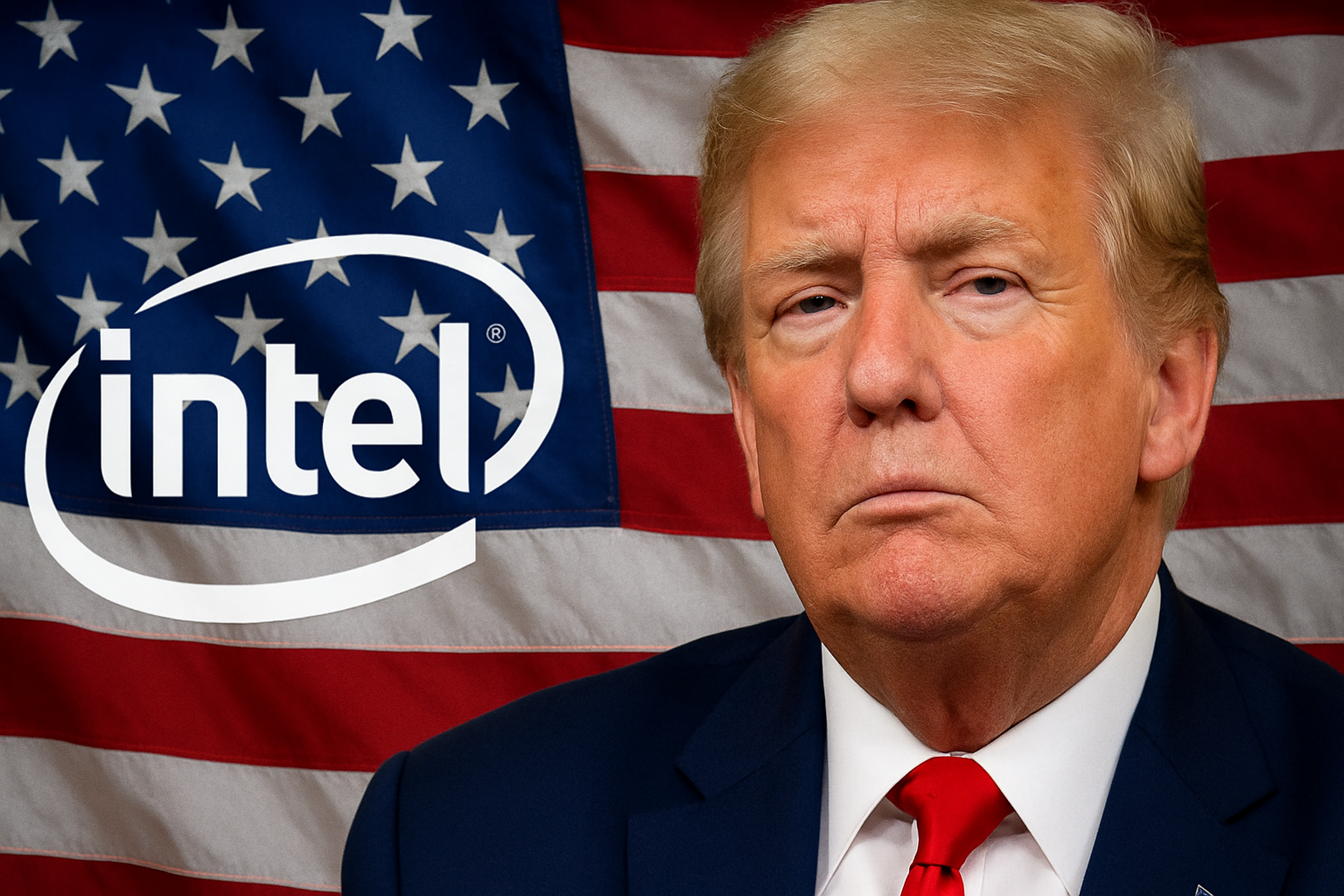In a move that has shaken the foundations of America’s economic philosophy, President Donald Trump announced that the US government would take a 10 percent stake in Intel, the country’s most iconic chip maker.
This decision is part of a broader wave of Trump’s tech deals, marking a historic departure from the nation’s long standing tradition of separating private enterprise from government influence.
While many hail the move as a bold step to secure U.S. dominance in semiconductors, others warn it could set dangerous precedents. For over two centuries, the United States has positioned itself as a champion of capitalism, free markets, and minimal state interference.
Unlike state driven economies such as China, the US thrived on innovation powered by private competition. Government investments in private firms have historically been rare and tied to crisis driven needs, such as bailouts during the 2008 financial meltdown.
Yet Trump’s tech deals represent more than emergency measures. They are deliberate, high stakes interventions in the technology sector, justified as essential for national security and global competitiveness.
Intel Deal A Turning Point
Trump’s decision to secure a 10 percent equity stake in Intel is unprecedented. The rationale? Ensuring the US leads the race in advanced chip production at a time when supply chains are increasingly threatened by geopolitical rivalries.
By making Intel a quasi public partner, the government is not just funding innovation but embedding itself in the corporate boardroom. Intel is more than just a chipmaker. Its semiconductors power everything from laptops to defense systems.
With China heavily subsidizing its chip industry and Taiwan’s TSMC holding global dominance, Trump’s intervention underscores fears that the US could fall behind. However, the price of government equity is the blurring of boundaries between public policy and private business.
Economic experts are sharply divided over Trump’s tech deals. Dr. Laura Simmons, a professor of economics at Stanford, argues:
This marks the end of America’s laissez faire myth. The US is adopting elements of industrial policy long criticized in countries like China.
While it may strengthen strategic industries, it risks creating dependency and political meddling in corporate governance. Meanwhile, national security analyst James O’Connell supports the move. The semiconductor war is not a metaphor it’s real. Without chips, there are no weapons, no AI, no digital economy.
Trump’s strategy is less about economics and more about survival in a hostile global market. These contrasting views highlight the broader debate Is America abandoning free enterprise, or simply adapting to modern geopolitical realities?
The Historical Context of State Intervention
While Trump’s tech deals feel revolutionary, they are not entirely without precedent. During World War II, the US government worked hand in hand with private industries to mass produce airplanes, ships, and weapons. Later, NASA’s Apollo program was powered by collaborations with Boeing, IBM, and General Electric.
The difference lies in ownership. Previous partnerships involved contracts, not equity stakes. Trump’s approach signals a government that doesn’t just fund innovation but actively participates in it.
China’s meteoric rise as a technological superpower has been fueled by heavy state involvement. Companies like Huawei, SMIC, and BYD received billions in subsidies and direct state backing. Critics argue that Trump’s tech deals are America’s attempt to play China’s game.
Yet the US risks losing what has historically made its system attractive independence of private enterprise, a magnet for foreign investors who trust in the separation of business and politics.
John Martinez, a veteran engineer at a California chip startup, shared his perspective. I grew up believing Silicon Valley thrived because the government didn’t own the companies it just created an environment for them to flourish. But with Trump’s new strategy, I worry innovation will become tied to politics.
What happens when the next administration decides Intel should focus on defense chips instead of consumer markets? That’s not innovation that’s state engineering.
Martinez’s concerns echo those of many industry professionals, who fear that government involvement could slow risk taking and creativity, the lifeblood of American tech.
What Comes After Intel?
If Intel is only the beginning, which companies are next? Microsoft, Google, Amazon, and NVIDIA are all critical players in AI, cloud, and national security. Once the government begins taking equity stakes, the temptation to expand this model could prove irresistible.
Trump’s tech deals might pave the way for a new era of state backed capitalism in the US a system where political priorities dictate technological evolution. Greater resilience against global supply chain disruptions.
Stronger national security and domestic production capacity, Protection against foreign monopolies in critical technologies, Erosion of investor confidence due to political interference, Potential inefficiency as corporate decisions become politicized.
Dr. Richard Evans, a policy expert at the Brookings Institution, sums it up. This is not just about Intel. This is about rewriting the social contract between American business and the state. If successful, it will secure US dominance in tech. If it fails, it could cripple innovation for decades.
For workers at Intel, Trump’s move has sparked mixed emotions. Some feel pride that their company is now considered a national security asset. Others worry about the possibility of tighter government control and politically driven layoffs or restructuring.
A young engineer in Arizona put it simply, We just want to build the best chips in the world. I don’t want politics telling me what kind of chip to design. These personal experiences highlight the tension between patriotic duty and professional freedom.
Trump’s tech deals are not just policy maneuvers they are philosophical statements about America’s future. By inserting government ownership into private enterprise, Trump has upended the country’s most cherished economic traditions.
Whether this is a necessary evolution or a dangerous overreach will depend on outcomes over the next decade. If Intel thrives and US tech dominance strengthens, history may credit Trump with reshaping capitalism to survive in a new world order.
If it fails, the US may find itself caught in the very trap it long warned others about the suffocating embrace of state controlled enterprise.
